Lughnasadh or Lughnasa is an official Irish holiday (Lúnasa) and Gaelic festival marking the beginning of the harvest season. Historically, it was widely observed throughout Ireland, Scotland (Lùnastal) and the Isle of Man (Manx: Luanistyn.) —Wikipedia
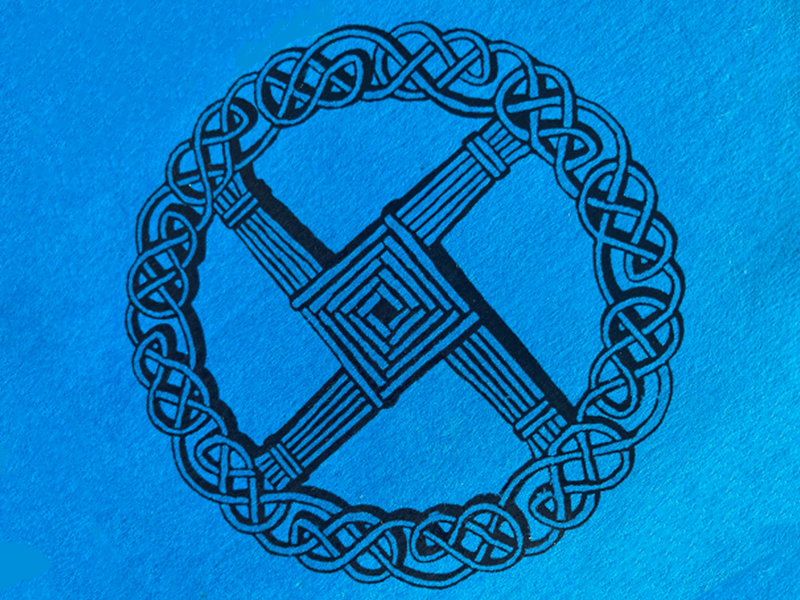
We explored the origin and practices of this Cross-quarter festival here. The illustration is the pattern for a Cross-Quarter cross. These crosses are woven from the first cuttings of harvest grain – a first fruits celebration. They are placed on the wall with the points to the cross-quarters (NE, SE, SW, NW). The solar equinoxes and solstices occupy the cardinal directions.
This year a harvest story from the Hebrew Bible (Old Testament) came to mind. It has a whole book devoted to it, and is named for the heroine: Ruth. Written sometime after 1050 B.C., perhaps by the prophet Samuel, the story is about a place of grace, a margin of mercy.
Here’s the story in a nutshell:
Because of a famine a family living in Bethlehem traveled to the land of Moab, and intermarried with the people who lived there. Ruth (a Moabite) marries Naomi’s son, but he dies and she has no children. Naomi decides to return to her homeland and Ruth goes with her. She says these famous lines:
“Where you go I will go, and where you stay I will stay. Your people will be my people and your God my God.” (Ruth 1:16b)
The two women live in poverty. At the harvest of grain the landowners leave a wide swath of grain along the edges of the field for the poor to gather and eat. Naomi sends Ruth to the fields of Boaz, her relative. Boaz is impressed with Ruth’s courage, loyalty and devotion to his kinswoman. Ruth and Boaz marry and their great-grandson is King David (Jesus’ lineage).
In this culture the Edges of the Fields were not cut because it provided grain for the poor to gather. When I was a child farmers left the edges of the fields uncut also, and it provided food and protection for pheasants, quails, and other birds and animals. Today, the factory farms cut to the fence wire. It would be very easy to program the machines/robots to leave the margins unharvested. A campaign by hunters for the dwindling pheasant population is being successful, as Ducks Unlimited helped wetland preservation. These are examples of people working to create Places of Grace and provide a Margin of Mercy for dwindling species.
A Margin for Mercy
The edge of a field becomes a Place of Grace, and provides the Margin for Mercy. I teach about the Edge as the place where conflict occurs, and how the Edge offers opportunities. For Ruth, her Edge is to choose to go with her mother-in-law into extreme poverty. In her new land, Boaz provides the fields where she goes to cut grain at the first fruit harvest. In that place of grace, Boaz meets a woman whose qualities he recognizes and honors. Ruth marries the landowner, Boaz, because his fields’ edges provided a margin of mercy, and those margins created a place of grace for them both.
In the July 4th Pursuit of Happiness blog the happiest countries pay extra taxes to create margins of mercy, and no person needs to be hungry or without a home. Mercy is a choice, an action based in a value of caring for other beings. It is as easy as providing cans and boxes to the neighborhood Food Bank, or encouraging your restaurant host to send what is not used to a shelter. It is as difficult as forgiveness for a wound to the heart.
Breaking a Place of Grace
This month I had an argument founded in a repeated frustration. I care for the person who is my partner in this conflict. The person continuously agrees to do something and then the schedule changes, or the requested task is forgotten. I’ve learned to be patient with those things. But when the person denies the agreement, especially when I’m looking at a text record of the agreement, I think “you’re lying” or “you’re rearranging my life according to your new need.” In this case I’d waited to do this work for over a month. I lost my temper.
As I child I was often sent to my room for doing exactly that. I learned to take comfort from being alone, and having silence to get my heart out of the storm. My lesson was very clear: no matter how just your position, you do not have permission to inflict your anger on another person, creating a wound for them.
I’m not a child in age, but have my child self as part of me, and I try to protect us and help us heal our early wounds. I recognize similar wounds in others and my work is often to help the person or group heal them. I am certified and experienced in psychodramatic techniques for helping people heal, and I have studied Carl Jung for most of my life.
Carl Jung created the idea of a complex, where a repetition of an early wound by other people in other situations sticks to the first wound, creating more and more complexity. The image I have for a complex is a wad of gum that has a twig, a pebble, a piece of the wrapper stuck to it; it’s hardened and feels more like a rock than gum.
In a psychodrama the protagonist has a presenting issue (mine would be this incident of losing my temper) but that scene quickly morphs into other moments of losing my temper moving backward in time. In my case the status nascendi, the birth of the presenting issue/complex, happened when my long-time ill mother returned from the hospital. My father wanted to be a family, and my mother wanted to be my mother. I was not consulted.
In my grandmother’s house I was seen, heard, loved. What I wanted was neither asked for nor considered. “They knew best.” So I was moved to a new house, and visited my grandparents in “their” house every Sunday. We did become a family unit, and my mother did her very best to mother me. They both loved their child very much.
I was angry, yes. But anger covers fear, and my fear established then and present now is that my wants, my opinions, my work, and by extension myself, count for zero in the situation. I am meaningless.
As an experienced, savvy adult person I understand the trigger. It still is a trigger. A trigger exists to tell us what we fear. What we fear is real. As an adult I can request to be recognized, responded to, and respected for who I am. I wish I hadn’t lost my temper. It caused a break in the web of connection. I wish I had not been ignored and lied to, as that created a rift in the relationship.
A dream brought me the opportunity to understand what opportunity this repeated conflict Edge offers at this time.
Healing Heart Strings
The dream….
I am on a very soft surgical table in a lovely room with windows looking out on a countryside turning towards fall. The colors of the dream are the colors of bees and autumn – the colors of harvest, of Lughnasadh. Shaped beams of golden to red light are the surgical team. There are quite a few about the room with four at the table working on me, one team at a time.
Their work is to repair my broken heartstrings. One says, “Doing this for her is important work.” Another says, “This is the important work of the world.” I can feel a tug here, a pull there in the region of my heart. I rest and heal.
I woke up thinking “Help me be worthy of such allies.”
How to Be A Margin of Mercy, a Place of Grace
The dream suggests that healing broken heartstrings is necessary to be able to live in and provide a place of grace, to create margins of mercy. I am not a dreamworld being of light. I am a light-seeker who understands the necessity of the balancing dark. I appreciate Solstices and Equinoxes as moments in our planet’s balancing cycle. I love the Cross-Quarters. They are the Edges of the Solar divisions. In the north they are indicators for the seasons of planting, tending, harvesting and rest. They are points of transformation.
To have a Lughnasadh harvest dream about healing heartstrings at first seemed to me an opposition: harvest is cutting and the light beings are melding back together what is cut. Ruth cuts her relationship with her birth family and homeland. “Where you go, I too will go.” She goes into physical poverty; she serves her mother-in-law, Naomi. They love each other. And Naomi looks out for her – she sends her specifically to Boaz’s Place of Grace. They all recognize, respond to and are recognized by each other – all intact heart strings.
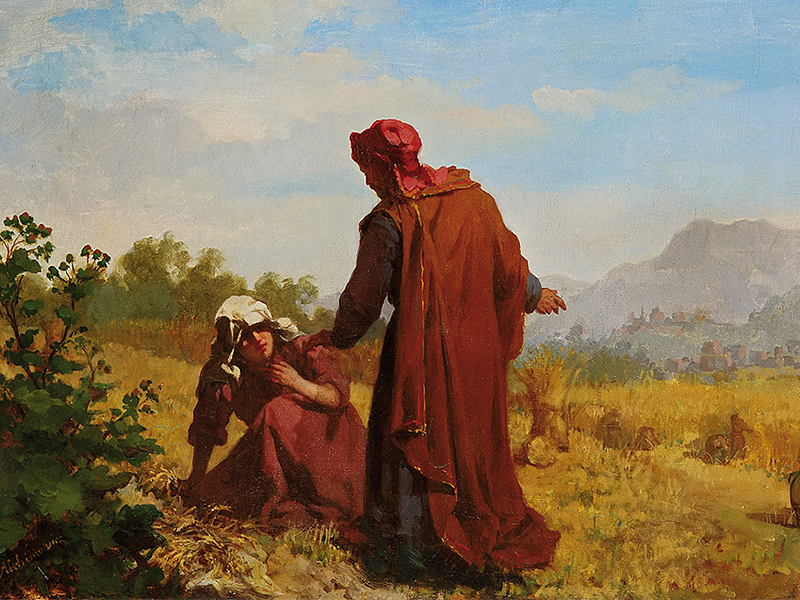
That it is a Lughnasadah dream encourages looking for first fruits and harvesting opportunities:
- Fall in love with the trigger moment – recognize its integrity. Harvest what you are learning.
- Find the heart strings being broken between you and the conflict partner, and tug and pull them back into place.
- Be attuned and ready to create a margin of mercy: ask what simple action can I take now in this situation and do it.
The core thread of my heart string is to be seen as who I am.
Harvesting Anger
Gardening is for me a Place of Grace, especially in my greenhouse when it’s raining. In this incident I ended the argument by saying, “You agreed to move this greenhouse with me today. I rearranged my schedule so we could do this now.”
Conflict partner: Denial (But I’m looking at the scheduling texts.) Refusal.
I lost my temper and shouted: “So I will do it myself.” And I have except for one afternoon when I had a helper for three hours.
The process of “doing it myself” is eating the elephant in little bites. Something obvious is changing on the project each day. What could have taken the gardening team four hours is taking me a week and a half. Each time a piece is completed my satisfaction meets my anger and soothes some inner thermometer. My conflict partner and others on the farm SEE me working, or SEE the result of the day’s work. I am, through the work of my hands, SEEN. I am, I think, honoring my trigger, harvesting my anger.
When the Harvest is in (metaphorically) I will weave a Cross-quarter Cross with my healed heartstrings. I want each harvested stalk woven to the others, turning around and around the center. I want to weave a Margin of Mercy around the center Place of Grace. So as I work I am singing Mary Gauthier’s song, “A Little Mercy Now.”
Please take a moment and play the song as you read the words. Her voice is so unusual and places the words into your heart. She is calling us to create Margins of Mercy for our families, our country, all of us.
My father could use a little mercy now
The fruits of his labor fall and rot slowly on the ground
His work is almost over, it won’t be long, he won’t be around
I love my father, he could use some mercy now
… My brother could use a little mercy now
He’s a stranger to freedom, he’s shackled to his fear and his doubt
The pain that he lives in, it’s almost more than living will allow
I love my brother, he could use some mercy now
… My church and my country could use a little mercy now
As they sink into a poisoned pit, it’s going to take forever to climb out
They carry the weight of the faithful who follow them down
I love my church and country, they could use some mercy now
… Every living thing could use a little mercy now
Only the hand of grace can end the race towards another mushroom cloud
People in power, they’ll do anything to keep their crown
I love life and life itself could use some mercy now
… Yeah, we all could use a little mercy now
I know we don’t deserve it, but we need it anyhow
We hang in the balance, dangle ‘tween hell and hallowed ground
And every single one of us could use some mercy now
Every single one of us could use some mercy now
Every single one of us could use some mercy now
Source: Musixmatch
Songwriters: Mary Gauthier
How do I create a Place of Grace with those I disagree with or when I am disappointed by their actions? It’s by filling my heart with mercy, which reweaves the broken strings.
Let us go about this harvest season, looking, like Boaz, for opportunities to love.
Comments are very welcome. If you have any difficulty posting your comment, please take a screenshot of the message (on Macs hold down Shift, Command, and press #3) and send it to my email.

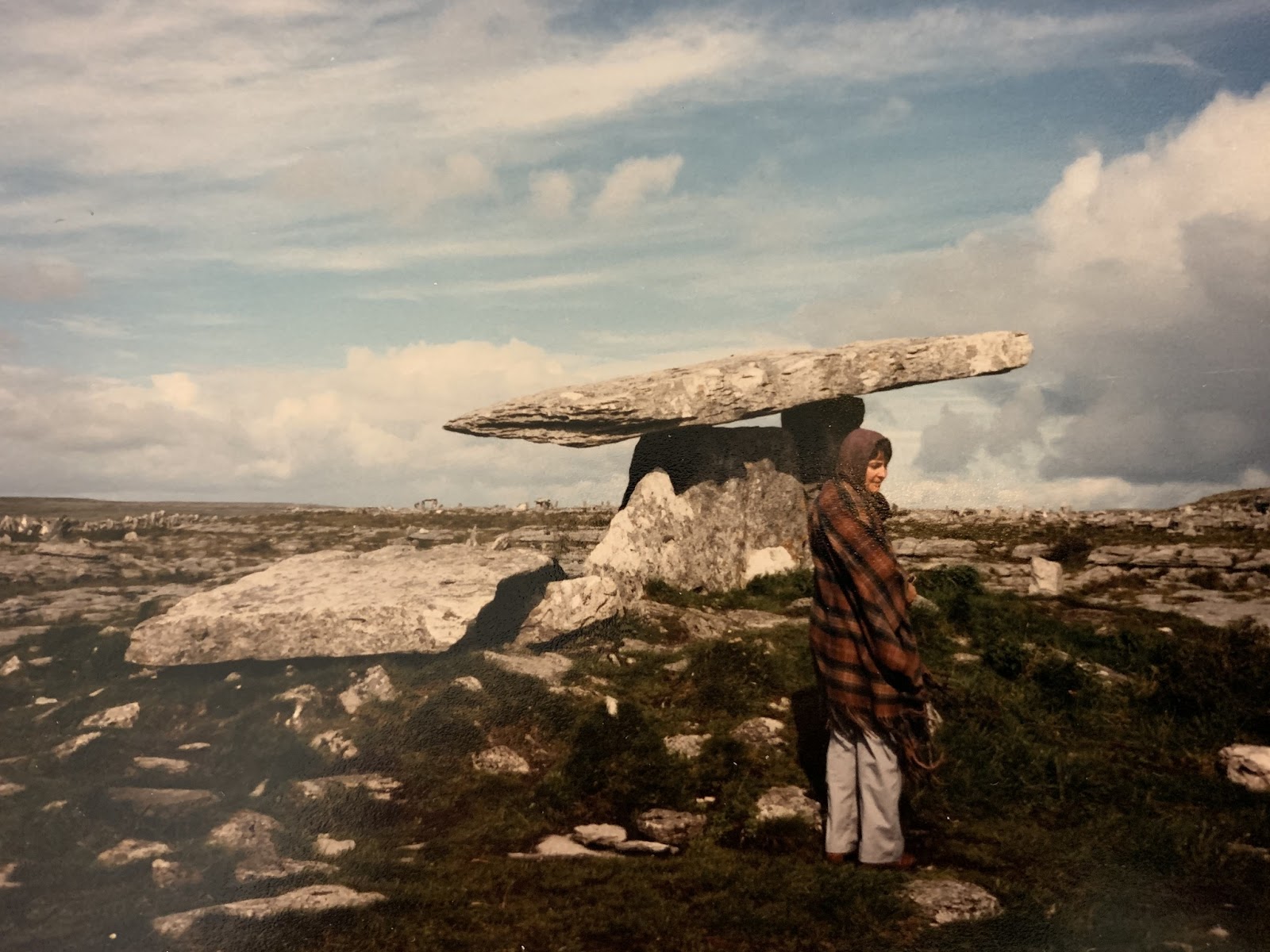
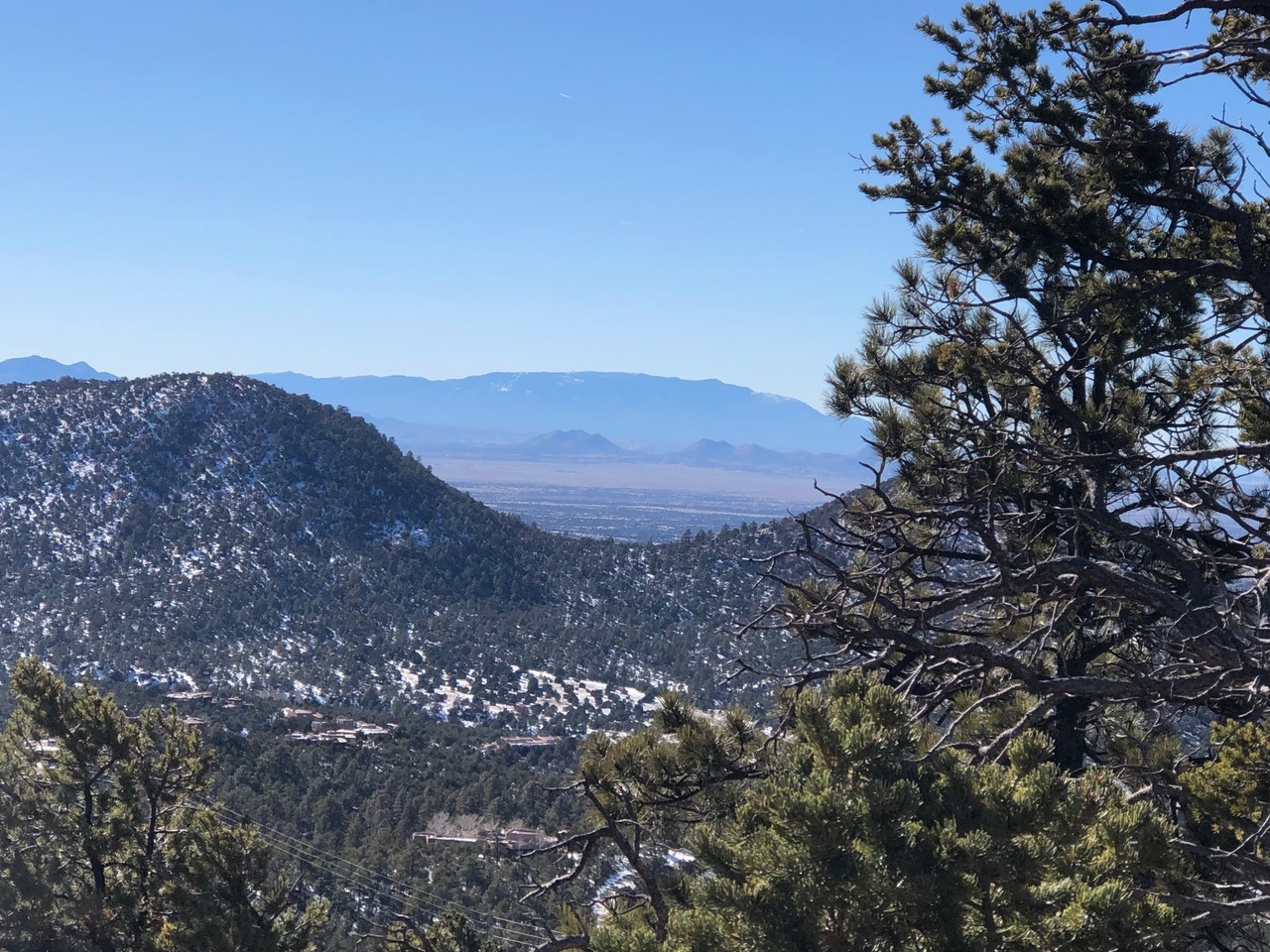
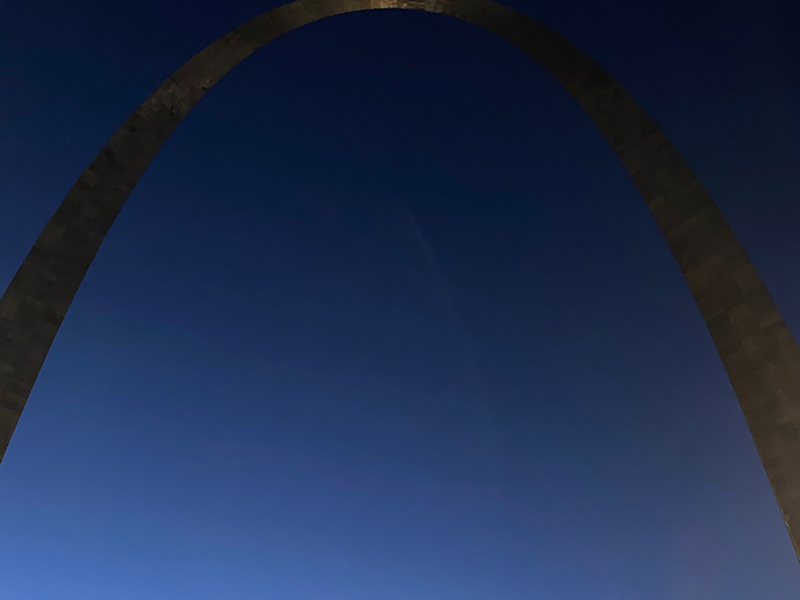

Anger is a healthy emotion. It’s how we choose to deal with it that can cause problems. Lashing out might feel good but seldom accomplishes anyting. What I have learned is that when I am angry I try to take a few breaths, if I’m able, suggest the person and I talk later, when I’m not angry. Anger can spur right action if we take into account what we want to accomplish rather than trying to “get back” at the other person. Being ignored makes me angry, but I’ve learned the person ignoring me doesn’t care about me, whih is why they’re ignoring me. I’ve learned to wish these people well and say goodbye. Sometimes this isn’t possible. Then the work of taking care of ourselves is doubly hard. Mercy indeed.